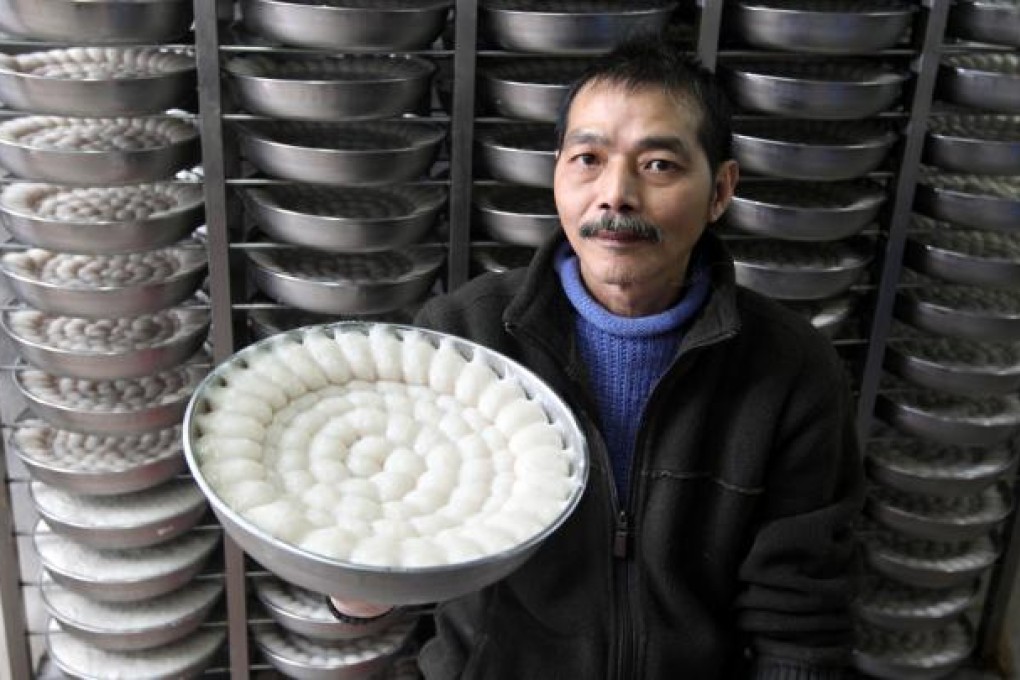Trawling ban threatens local fish balls and shrimp paste

The ban on trawling in Hong Kong waters could result in the loss of two local delicacies - fish balls and shrimp paste - those in the industry warned.
The owner of a popular shop that sells quality home-made fish balls, using local supplies, said his business would close if he cannot find affordable substitutes.
And a veteran fisherman said locally made shrimp paste had already vanished.
The trawling ban, intended to save remaining fish stocks in Hong Kong waters, comes into effect on Tuesday.
Lam Law-ping, who has owned the Tak Hing fish ball shop in Kowloon City for 20 years, said he relied on local trawlers to supply him with enough lizardfish and conger-pike eels to produce about 70 catties (42,000 grams) of hand-made fish balls a day. He also produces a larger amount using machinery.
"It is going to affect us greatly. In the worst case, we might have to close down our business," said Lam, who nonetheless supports the trawler ban because it will make fishing sustainable.
Lam is one of the few fish ball makers who still insist on producing the popular fare locally instead of buying cheaper versions from the mainland.